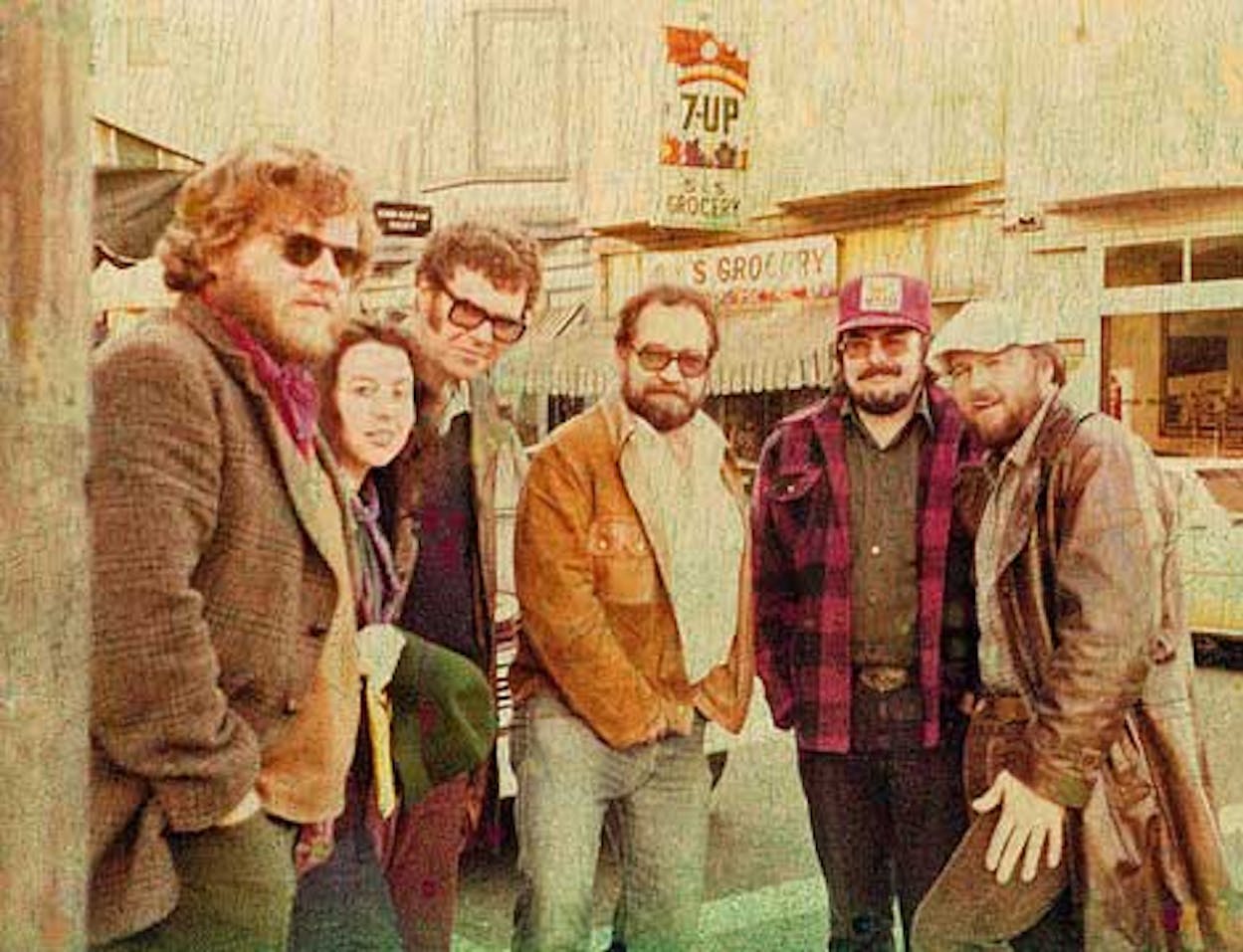When I finally caught up with Jim Crumley, he was sleeping on a couch in Chuck Kinder’s elegant apartment in the Mission District of San Francisco, California, sleeping the heart right out of a fine spring afternoon.
It was 1975. His first detective novel, The Wrong Case, was imminent. I had never heard of James Crumley and few others had either. Most of us had not yet read his masterpiece, One to Count Cadence, which appeared in 1969 and sold only 7,500 copies. He’d driven down from Missoula, Montana with Bill Kittredge to see their buddies Ray Carver, Max Crawford, and Chuck and Diane Cecily, Chuck’s wife. In those days, there was a literary underground railroad between Missoula and the Bay Area, and it was well traveled by several unknown but exceptional writers who would become the best of their generation. As for the various personal intrigues between them all, it’s a tangled tale that deserves a book of its own.
At Stanford, and later in San Francisco, Chuck’s house was always the center spread of the moveable feast. Chuck and I had been classmates in the Stanford Writing Program (along with Scott Turow, April Smith, Michael Rogers, and several other writers who would publish successfully), and during a two- or three-year period in the mid ‘70s, I made my way to Chuck and Diane’s place at least twice a week to join the usual revelers around the table: Carver and his wife, Maryann, Crawford, Kittredge, the underground cartoonist S. Clay Wilson, and scads of colorful hangers-on and drop-ins, including the occasional Merry Prankster. It still felt like the ’60s.
Jim Crumley and I hit it off because we were both from Texas and didn’t particularly want to go back. As he wrote in the last sentences of his novel The Final Country, “But wherever my final country is, my ashes will go back to Montana when I die. . . . I’ll sure as hell never go back to Texas again.”
We had both come from small Texas towns (Mathis and Texas City); his dad had been an oil field worker and mine worked in an oil refinery; and our mothers had both been waitresses. Despite our age difference—I was in my mid-twenties and he was nearly ten years older—he treated me as a peer and a literary equal, which was preposterous because he was a major American talent who would soon revive the hardboiled detective novel in the post-Vietnam world. He would become a cult figure in France. A younger generation of crime writers—Dennis Lehane, Michael Connelly, George Pelecanos, Robert Crais—would revere that graveled Crumley voice and learn from the master.
As the years went by, Crumley and I had many misadventures in strange dark cities and country bars. We crossed into Mexico once or twice, up to no good. We met James Michener one night in San Marcos. We tried to stay in touch as our lives straggled off across the country. The way he lived his life took a toll on his body. A few years ago he lapsed into a month-long coma from which few of us thought he would recover. But he did. When I saw him after that, he was no longer that world-weary badass, leaning like a cocky bar fighter against a wall with a cigarette in his hand in the Lee Nye photo on the back of The Last Good Kiss. He was a white-haired old man stooped by age and illness, shuffling slowly through hotel bars with a cane. I refuse to remember him that way. Or gone. I’d rather think of him as living a reclusive poet’s life in an obscure French village. Someday I’ll get over there and we’ll have another drink together.
A year ago, my son and I flew up to Missoula to visit Jim and his lovely wife (number five), the poet and Paisano fellow Martha Elizabeth. I knew he wasn’t long for this world and I wanted to see him one last time. And I wanted my English-major son to experience what it was like to meet Hemingway. As we were having a meal on an outdoor patio in the dying light of a hot Montana evening, staring off toward the mountains that Jim loved so much, he looked at my son and said, “Danny, there’s only one thing you have to remember in life.” I waited. What was the old detective of the heart going to tell this young man? Never sleep with a woman who has more trouble than you do. Love is a .45 that won’t jam. “Be polite,” he said after a long pause and a slow bite of steak. Be polite.
Like his detective Milo, Jim Crumley was never going back to Texas again. But he still carried a little of the old soil in his soul.
Tom Zigal is the author of the Kurt Muller mystery series set in Aspen, Colorado. He lives in Austin.







